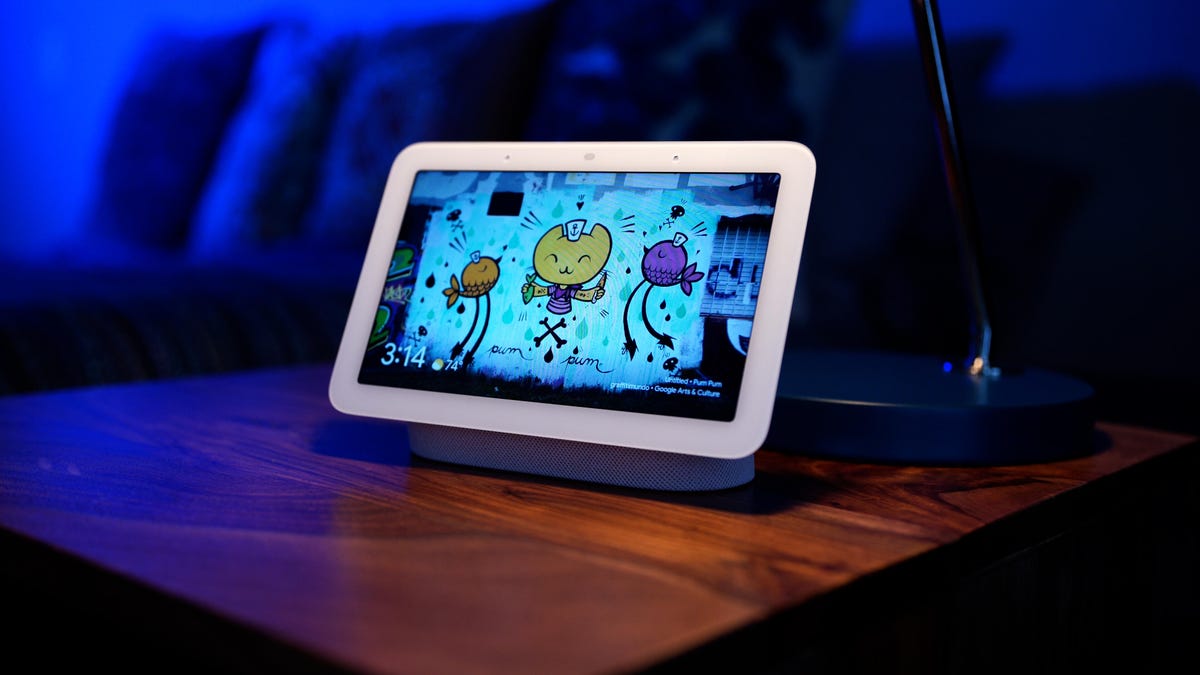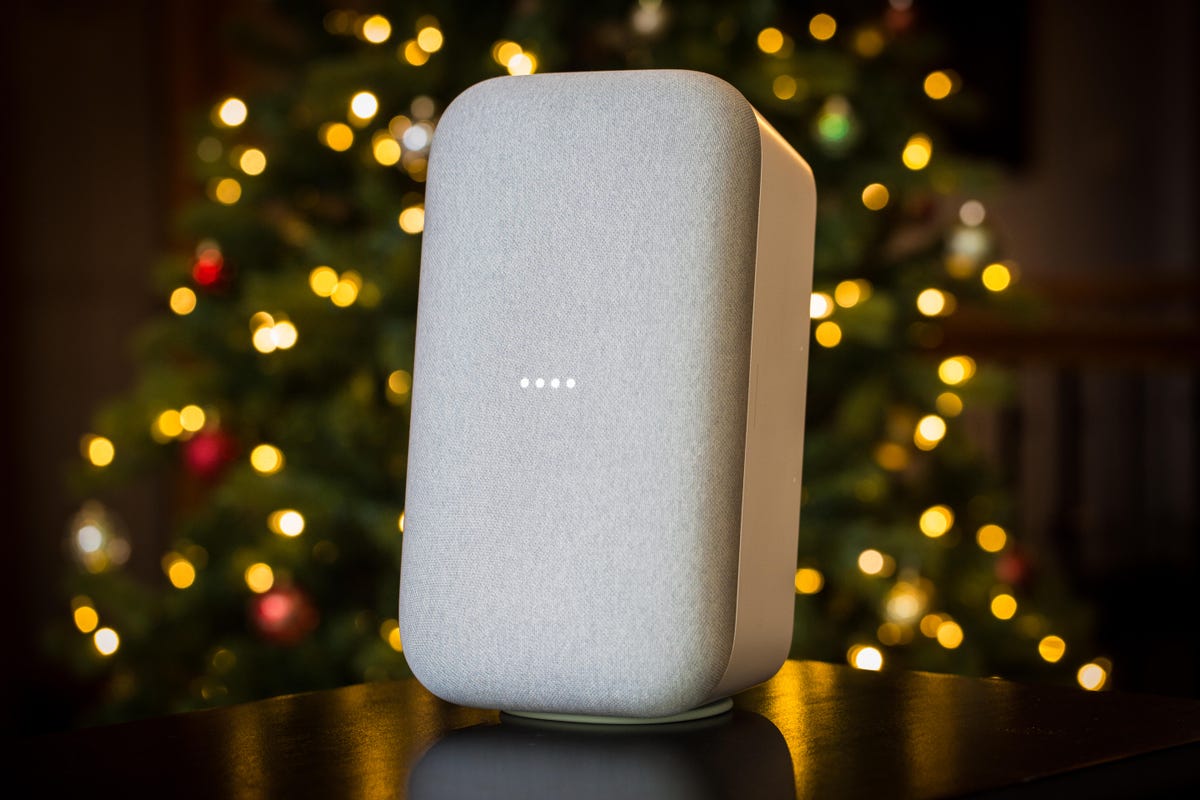When it comes to smart speakers, you have two main options. Amazon Alexa on Echo speakers and Google Assistant on the Nest Audio line. After the announcement of the Gemini AI-powered assistant at Google I/O, it's clear that Google's previous assistant is outdated. Gemini integrates with many Google apps, Android, and even his iOS version of Google apps, but the company hasn't mentioned that Gemini will be coming to the Nest product line.
During the I/O keynote, Google's Gemini AI preview caused some confusion, but it was clear that different implementations of AI can provide contextual help in many situations. Use cases include asking questions about videos you're watching on your phone, requesting AI to create an image, and quickly researching topics without opening another app or browser tab. . Gemini's experimental project Astra Assistant responds with a new, more personal voice.
Meanwhile, there was no mention of Nest products at all, let alone speakers. A Google spokesperson confirmed that this year's I/O is intended to focus on the mobile Gemini experience, and there is nothing to share regarding Nest speakers or displays at this time. This is a personal bummer since I have Nest Audio speakers throughout my house. I have a stereo pair in the living room and kitchen, original Google Home speakers in the bathroom, and a Nest Mini in the bedroom. My favorite things about my Nest setup are the sound quality and the creation of speaker groups. The problem arises, especially with the current version of his Google Assistant.
My current system needs an upgrade, but I'm not sure if my setup will be left behind in this Gemini-AI wave. This is a shame, because Google Assistant, powered by Gemini AI, could take current Nest products, such as speakers, and make them even more useful while fixing some of their shortcomings.

Google demonstrated Astra over the phone, which uses Gemini AI to answer context-specific questions.
Please tell me the details
We've seen Gemini leverage AI to give snappy answers, but let's take a look at how Google's old Assistant falls short in comparison. Google Assistant may try to answer simple queries, but it can only do so by sending you a link to a Google search result. Also, if you do get a response, the answer may be taken from a website rather than researched. For example, when I asked the speaker how to tell if a particular vegetable is spoiled, he read out an excerpt he found on a website. That works, but it would feel more natural if the Nest Google Assistant was powered by Gemini, since it could also look up answers and summarize them.
As it stands, Google Assistant only contextually recognizes what I ask in certain situations. For example, yesterday after I asked the speaker about an old carrot and if I could make soup with it, the assistant instead of telling me if it was a vegetable told me that it was a vegetable soup. I started reciting the steps on how to make it. Cooking damaged carrots is a good idea. (Not really. Don't use rotten vegetables for anything).
The current Google Assistant works pretty well when it comes to weather. That's great because if I ask about today's weather in New York and then follow it up with, “What's going on in Chicago?” my Nest speaker will give me the Windy City's weather without me having to specify it.
Then there's the issue of music streaming. Google Assistant supports several third-party music services, but when I switched from Google's own YouTube Music Premium to Apple Music, search accuracy decreased noticeably. For example, requesting a specific song would play the wrong track in an album or stream music from a completely different artist.
This week, when I tried to get my speakers to play RuPaul's Call Me Mother, RuPaul's American was repeatedly queued despite multiple requests. There's no guarantee that Gemini will be a better DJ, but if she analyzes and summarizes my emails (as Google advertised during her I/O), she'll pick the right songs for you. I hope.

The second generation Google Nest Hub launched in 2021.
Does Gemini need a new Nest speaker?
Google's Nest speaker and smart screen lineup hasn't been updated in years. The company last announced a new speaker with the Nest Audio in 2020, and its latest smart screen is the second-generation Nest Hub in 2021. This was before Google announced its own Tensor processors, which are currently found in Google Pixel smartphones. This provides processing capabilities for artificial intelligence features on some devices.
At Google I/O, Gemini AI is not only a key part of Android 15, but it's also being shown off in cloud apps like Gmail. Is it possible that the existing line of Nest speakers can't handle the more powerful Gemini-powered AI Assistant?
We hope that doesn't happen, but it's important to note that generative AI platforms like Gemini are still fairly new and may not work as well as previous assistants without improved on-device processing. . The new Nest Audio speakers come with improvements that make the voice assistant faster compared to the original Google Home from 2016. It's been quite a while since it was last updated. By comparison, Amazon's Echo product line continues to grow in 2023 with the new Echo Show smart screen, Echo Pop speaker, and the announcement that the Echo assistant will use AI to become more conversational.

Google Home Max is the largest speaker Google has released with Assistant.
If you want a new Google Nest speaker, at least make it bigger
To be clear, I don't need to buy a new Google Speaker to get the Gemini-powered assistant to work. I hope it arrives as an update. I'd love to see a new version of the original Google Home Max. This version includes an auxiliary input for other audio sources, such as a record player, and can get pretty loud at maximum volume, making it still the largest speaker the search company has released to date. Instead, the Nest Hub Max smart display prioritizes the screen and video camera over high-quality audio.
For now, it looks like Google is trying to corner Sonos, Apple's HomePod, and Amazon's Echo Studio in the high-end smart speaker category. If Google is putting its Nest Audio line on hold for a reboot with Gemini, it might want to be bold.
Editor's note: CNET used an AI engine to create dozens of stories and label them accordingly. The notes you are reading are attached to articles that substantively cover the topic of AI, all written by our expert editors and writers. Learn more about. AI policy.


